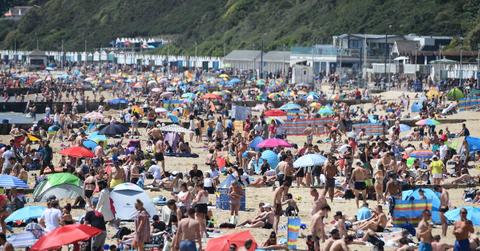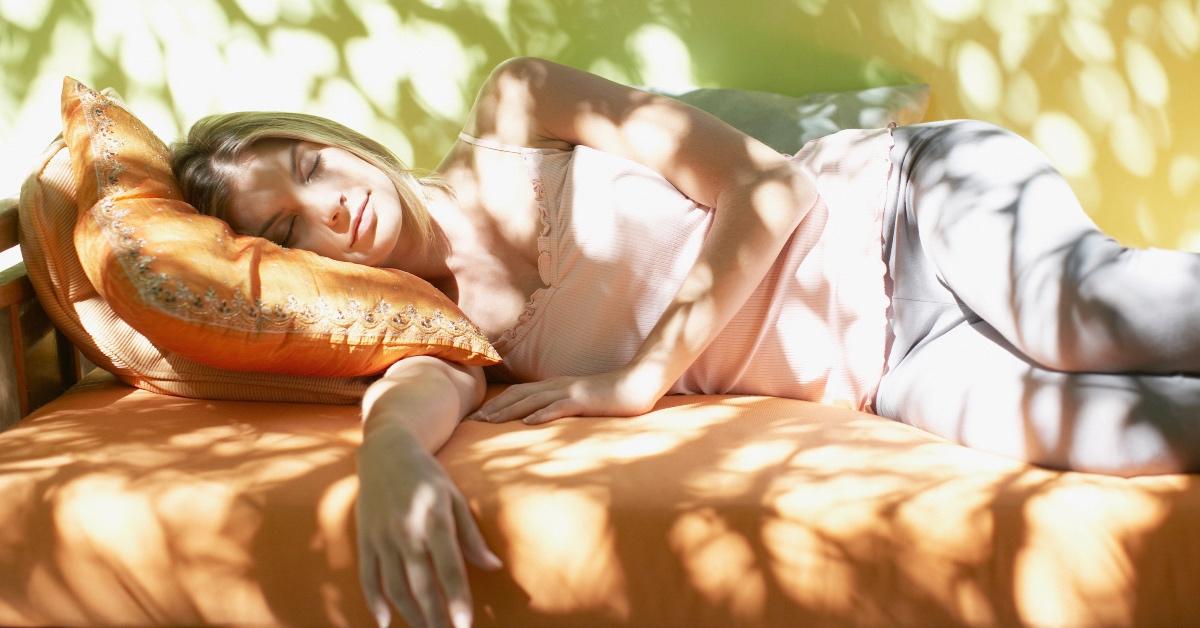Here's Why You Feel Sleepy After Being in the Sun — and Why Your Body Needs the Rest
Updated July 17 2023, 4:09 p.m. ET

In summertime, when the weather is warm and the sun is shining, there’s often nothing better than a backyard barbecue or a weekend excursion to the shore. The mood-boosting effects of vitamin D are usually enough to outweigh the downsides of potential sunburn and the wiped-out feeling that comes from spending hours in the sunlight.
But why does the sun make us tired? And how can we avoid that sleepy sensation? Keep reading for everything you need to know about why a simply beach day makes you feel wiped.

So, why does the sun make you tired?
There are quite a few scientific reasons behind why the sun makes us so sleepy. Many of these have to do with biology and are quite unavoidable, but others are actually pretty manageable.
Sunburn
Being in direct or indirect sunlight exposes the body to ultraviolet rays. According to Sleep, these rays don’t just cause sunburn for those not wearing the appropriate amount of sunscreen; they can also make you feel tired. Ultraviolet rays damage the skin, leading the immune system to fight back to repair the body. Most of these repairs happen during sleep, so the immune system works to bring about that result.

Dehydration
It’s easier to become dehydrated than expected, especially on hot days when exercising or playing hard in the sun. As we sweat, our body loses fluids, and the key to avoiding dehydration is replenishing those fluids at various intervals during the day. Per the Chicago Tribune, 43 percent of Americans drink less than the recommended four cups of water daily, so it's imperative to hydrate during time in the sun.
According to the Cleveland Clinic, symptoms of dehydration include dry mouth, headaches, excessive thirst, lightheadedness, dark urine, or infrequent urination. Dehydration can also cause blood pressure to drop, decreasing blood flow to and from the brain.

Internal temperature
According to Scientific American, raising the body’s internal temperature above 98.6 degrees can be exhausting. The hotter it is outside, the harder your body will have to work to regulate that temperature to keep you cool. Especially if you're exercising in any way, increasing the body’s metabolism can also contribute to fatigue from time spent in the sun.
When it's hot, the body will dilate its blood vessels in vasodilation to allow more blood to flow near the skin's surface and cool off warm blood. Sweating also cools the skin as it evaporates, increasing your heart rate because your body works harder to cool down.
Ultimately, avoiding being tired after a day in the sun is difficult. If you feel tired after a day at the beach, a hike in the woods, or a family reunion picnic that went on a little too long, make sure to rest, drink lots of water, and spend a dedicated amount of time out of the sun — your body will thank you later!
This article, originally published on June 23, 2021, has been updated.